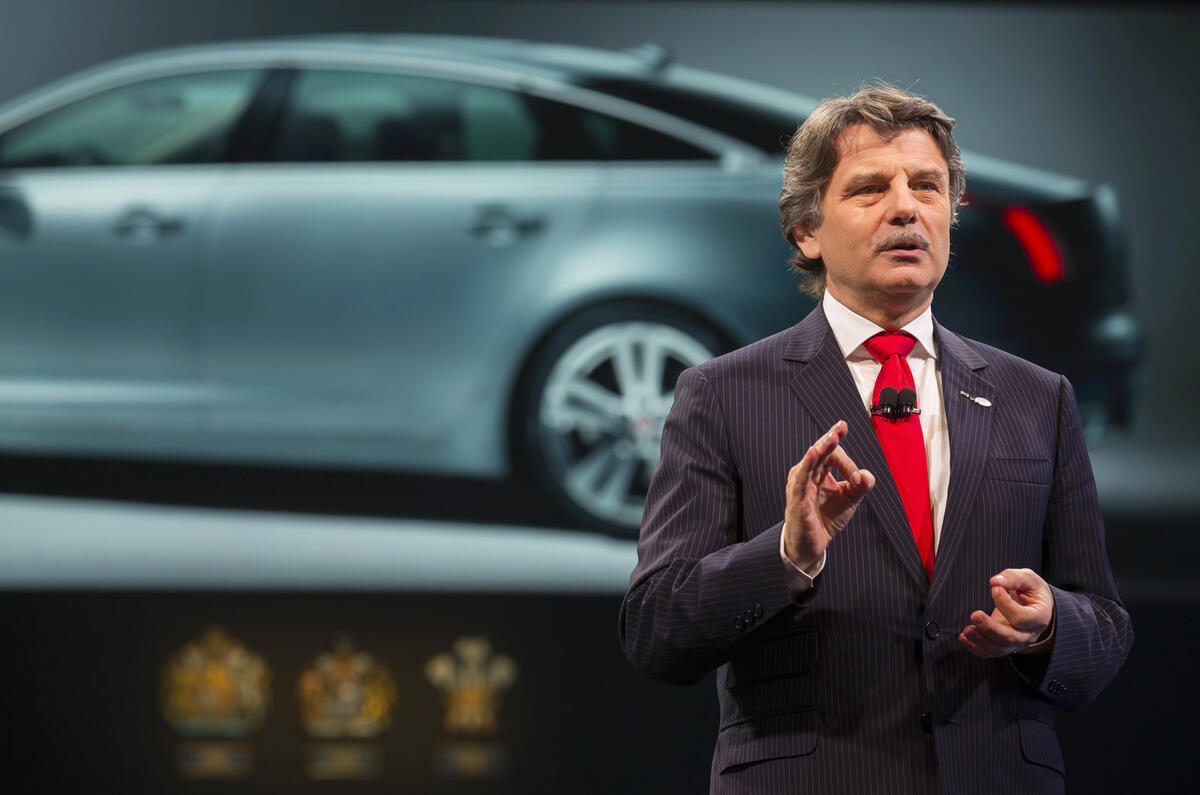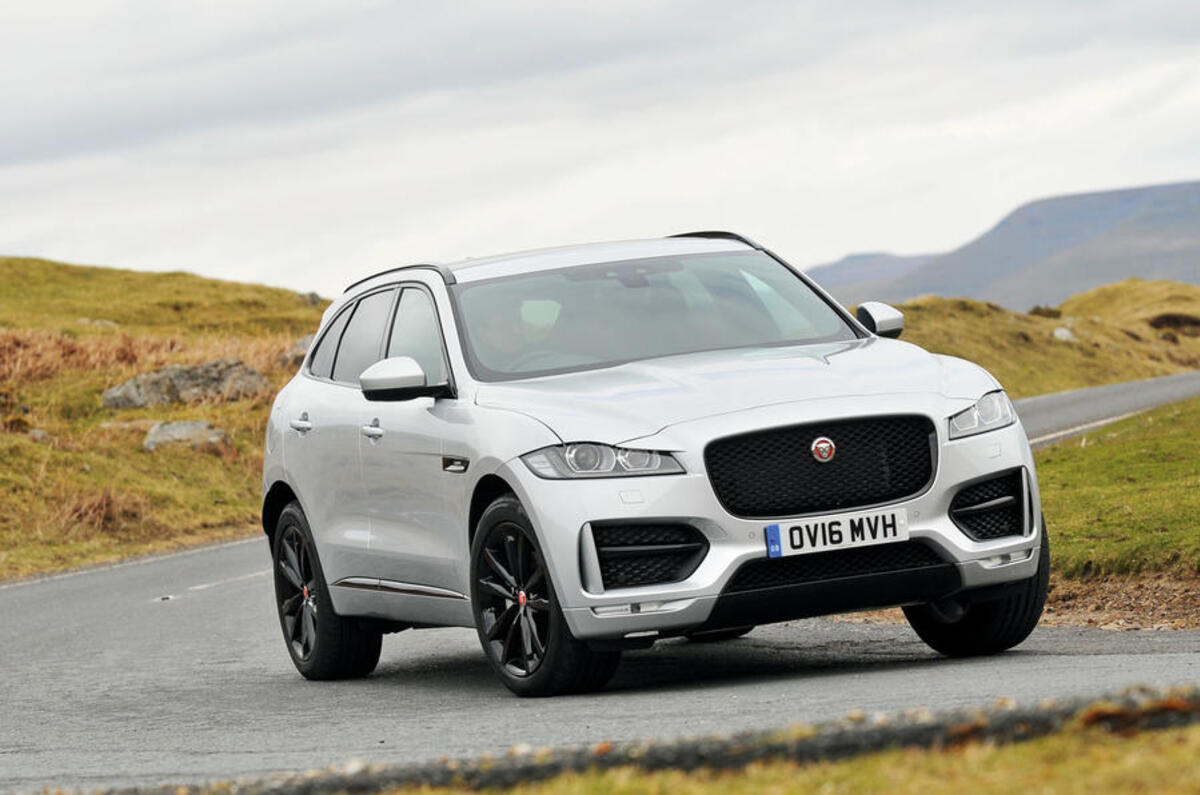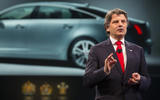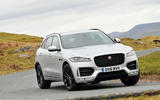Jaguar Land Rover (JLR) boss Ralf Speth has launched a fierce defence of diesel cars and attacked the demonisation of modern diesel engines, which he believes to be incorrect.
Speth told Autocar that his company would be doing more to promote modern diesel technology, and said that its continued adoption would be crucial if the industry was to meet the every stricter emissions legislation imposed upon it.
“The latest diesel technology is really such a step in emissions, performance, particulates; it’s better for the environment when compared to [an equivalent] petrol. Diesel has to – needs to – have a future.”
Is it time to give up on the diesel engine?
Speth believes that the issue of diesel emissions is one for the entire transport and automotive industry, not just one related to cars, as diesel is the effectively the sole power source used for commercial vehicles, lorries, buses and taxis, all of which are big contributors to air pollution, particularly in major cities, saying: "the complete automotive industry needs diesel to fulfil legislative requirements”.
Diesel vehicles to be banned from Paris, Madrid, Athens and Mexico City by 2025
Speth highlighted the distinction between older diesels and newer ones, with modern diesels being much cleaner and meeting current legislation. Reporting on diesel has lumped the technology old and new together as a whole, he believes, and has led to the demonisation of the technology as a whole, which Speth believes to be incorrect.
“Anyone can see the black smoke coming out of old diesels is bad. We need to replace them with newer ones.”
Diesel engines: your questions answered
Speth said the cleaner emissions of modern diesels is the important bridging technology in ensuring emissions continue to fall before hybrids and electric cars really hit the mainstream. Widespread adoption of hybrid and electric cars is needed for the industry to meet stricter legislative emissions targets, but the industry was instead seeing a shift back towards petrols.
“It’s bad for the industry, bad for Jaguar Land Rover, and bad for Europe,” he said. The last point is key, as Speth said that the European car industry more than anywhere else in the world is reliant on diesel cars, and moves away from them would impact the continent’s ability to meet targets.
Speth hinted that he believed the start of the demonisation against diesel can be traced back to the Volkswagen Dieselgate emissions scandal, on which he said: “This kind of manipulation software is not acceptable. Unfortunately, the whole automotive industry suffers, not just Volkswagen.”
Government reveals plan to cut emissions in towns and cities
Education is now needed on modern diesel technology and to promote its benefits, Speth believes. “Nobody believes the automotive industry anymore,” he said. “They see us as offenders and not giving the right information. We have to show our technology is the best you can buy, to reduce the damage to health and the environment.”
Speth said there would be no specific date when diesel-powered cars would disappear. “ICE to ACE – internal combustion engine cars to autonomous, connected, electrified ones – will happen in parallel. There’s no switch. You can’t say diesel will go in 2020. We need to develop both, internal combustion diesel and petrol engines, in addition to battery electric vehicles.”











Join the debate
Add your comment
If JLR wants customers to
Customer
How to regain trust
It is common knowledge that most if not all manufacturers manipulated emissions tests to make vehicles look cleaner in the test cell than on the road. This includes EU5 vehicles (where the main motivation was to protect the engine from damage) and EU6 vehicles (where the additional motivation was to reduce Adblue consumption).
But none of them have owned up to their sins on Europe. They all hide behind loopholes in the legislation to protect themselves from prosecution and costly retrofit costs.
But they all new what they were doing. They all knew that their vehicles were polluting massively, but they chose to ignore it and set off red herrings left right and centre. Instead of developing solutions, they developed cheats. They have only themselves to blame for the demise of diesel. If they want to revive it they need to be transparent and not treat us like idiots.
How to regain trust
It is common knowledge that most if not all manufacturers manipulated emissions tests to make vehicles look cleaner in the test cell than on the road. This includes EU5 vehicles (where the main motivation was to protect the engine from damage) and EU6 vehicles (where the additional motivation was to reduce Adblue consumption).
But none of them have owned up to their sins on Europe. They all hide behind loopholes in the legislation to protect themselves from prosecution and costly retrofit costs.
But they all new what they were doing. They all knew that their vehicles were polluting massively, but they chose to ignore it and set off red herrings left right and centre. Instead of developing solutions, they developed cheats. They have only themselves to blame for the demise of diesel. If they want to revive it they need to be transparent and not treat us like idiots.